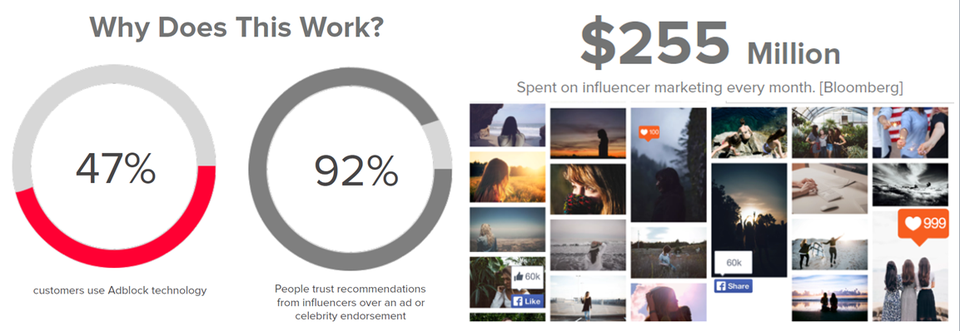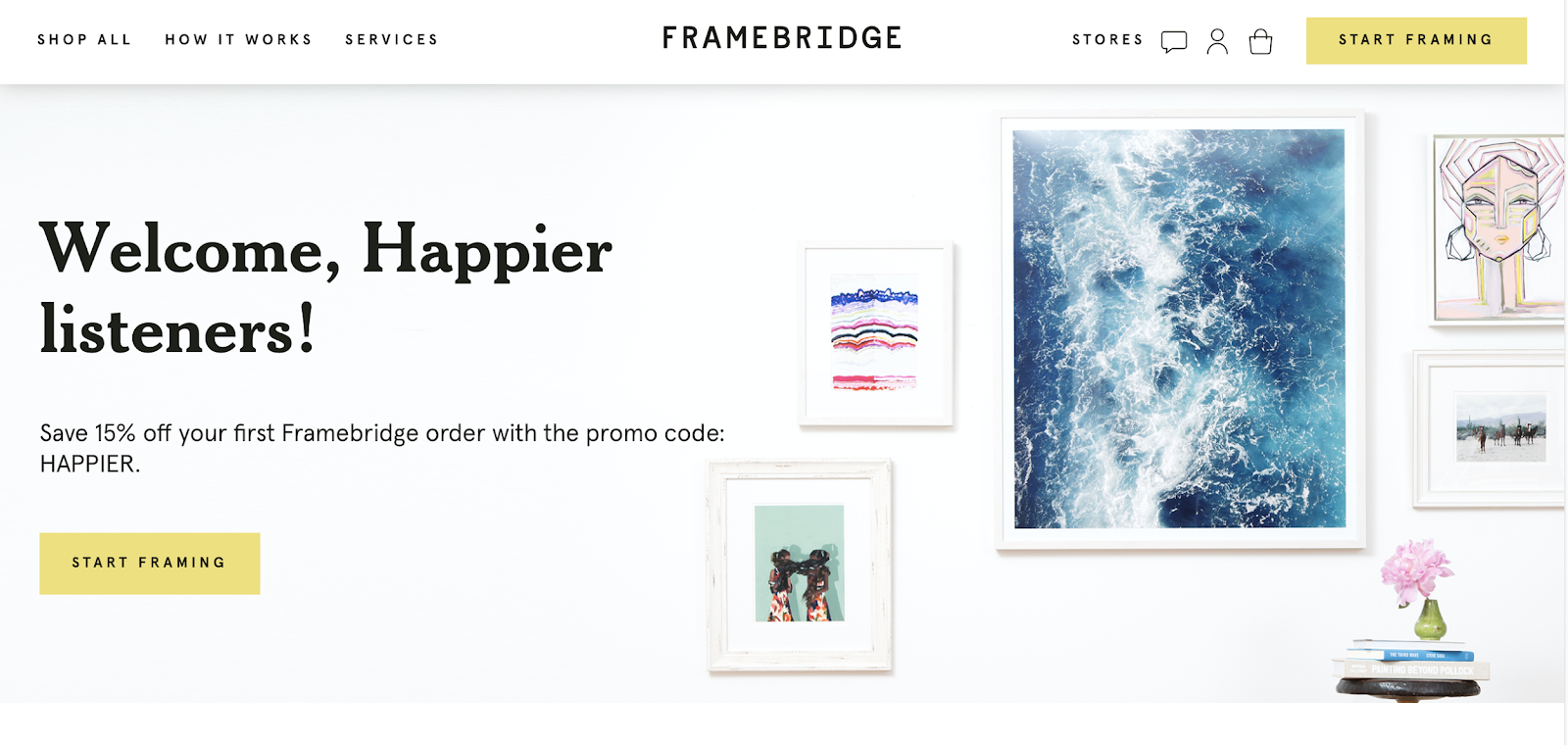How Influencers Are Changing The Affiliate Marketing Game
Kevin Payne Growth & Content Marketing Consultant

Influencer marketing is not a strategy that’s going to go away anytime soon. As companies and brands have realized the challenging reality of marketing to young demographics like Gen Z, it’s become clearer that traditional advertising just doesn’t cut it. They’ve had to switch gears to see what works best.
Many brands are now tapping into the people that these younger demographics trust: influencers. Influencers are changing the face of marketing as we know it – including affiliate marketing. But does it mean affiliate marketing is no longer relevant with the rise of social media influencers, who seem to operate on a “pay me, get a shoutout” model?
Not necessarily.
In this post, we take a look at exactly how influencers can actually give your affiliate marketing strategy the boost it needs. Then we’ll walk you through a few steps to keep in mind when you want to work with influencers as affiliates for your brand.
The Old Way of Affiliate Marketing
Before we talk about exactly how affiliate marketing is changing in the era of social media influencers, let’s first look at the “old” way of affiliate marketing.
Most affiliates were traditional bloggers or publishers
Before social media became a huge force in our lives, many brand affiliates were traditional bloggers or media publishers who had their own websites to promote or review a brand. You could only find product demonstrations, walk-throughs, or reviews from these kinds of publishers.
Many affiliates wouldn’t champion one specific brand
Because a lot of these bloggers and media publishers were trying to monetize their own content, they often focused on broadening their membership to multiple affiliate programs in order to increase their chances of getting referral fees from a broader set of readers with varying preferences.
So these content producers often joined all the popular affiliate programs – often for competing brands – and didn’t champion one specific brand over others. This makes it harder for a brand to be seen as a “top choice.”
The New Influencer-Driven Way of Affiliate Marketing
The “old” way of doing affiliate marketing is still alive and well. And many publishers make a significant income by being part of multiple affiliate programs. But the problem is this: the old way of doing affiliate marketing doesn’t always highlight the unique strengths that influencers bring to the table, especially for brands.
So how are influencers changing the affiliate marketing game – and how is that actually a good thing? Let’s take a look at the two major shifts.
Built on trust between influencer, brand, and followers
You’ve probably already read the report that said 92% of people trust influencers more than they trust traditional celebrity endorsements or ads. And that’s because, if you tap the right influencer, you’ll know they’ve fostered an engaged community based on trust.
Real, high-quality influencers don’t recommend products they don’t use or trust themselves, and their vast audiences are often aware of that. So this makes influencers one of the best ambassadors you can have for your brand. As true fans of your brand, they’ll champion your products and recommend you more times than the average consumer or traditional publisher.
 Source: Influencers Are The New Brands, Forbes
Source: Influencers Are The New Brands, Forbes
Influencers give testimonials, demonstrations, and
calls-to-action all at once
Relating to the previous point, one reason influencers can make such compelling affiliates is because of the way they actually promote your brand.
Influencers are content creators, so they focus on delivering quality content for their followers. You’ll find that many influencers use a combination of giving a personal testimonial, demonstration, and call-to-action to talk about your brand.
Followers of these influencers can see how products are used, how it might benefit them, and what the influencer – already seen as a trusted individual in the industry – thinks about the product overall.
What this means is that influencers are helping their audiences go through the typical sales funnel, from awareness down to consideration and even purchase. But the difference is that they do this in a very personal, authentic way that their followers trust.
How to Get Influencers as Affiliates
Ready to start getting influencers on board as affiliates for your brand? Here are 4 steps you should follow.
1. Make sure they aren’t already promoting your competitor
First of all, make sure these potential influencer-affiliates aren’t already big promoters of your competitor. While some brands in certain industries can work with the same influencer – such as beauty and fashion brands, for example – you’ll generally want your influencer-affiliate to solely champion your brand.
If you find that your potential influencer might already be talking about your competitor, you can offer either a free trial or sample of your product, just to see if they’d make the switch.
Also be sure to take note of how your influencer talks about any competition. Do they have a referral code or affiliate link to those brands? If not, you might be in a great position to offer them their first affiliate opportunity that’s exclusive to your brand.
Moving on from this tip, be sure to keep a lookout for fake influencers, who usually have plenty of “ghost” followers or promote brands as if they were partnered with them.
2. Offer to launch co-branded landing pages with the influencer
One way to really personalize your experience with your influencer-affiliates is giving them a dedicated landing page just for their followers. You can create a co-branded page that mentions the influencer or their brand to give it an exclusive feel.

Source: Rubin’s podcast Happier, Framebridge
Framebridge has a dedicated landing page for listeners of Gretchen Rubin’s podcast Happier.
Depending on your agreement with the influencer, you can host the landing page on your website, or on their own site if they have one.
3. Create collateral the influencer can use in their accounts
Do a thorough content audit of these potential influencer-affiliates to see what kind of media they post on their accounts. Some influencers have a variety of channels, such as Instagram, YouTube and TikTok.
If you see an opportunity to supply any relevant content types – flatlays, short screen recordings of an app demo – send these to your influencers. They will most likely appreciate having a few done-for-you posts, so long as it fits their feed or content style and isn’t overly branded.
And of course, give your influencers room to inject their own brand when talking about your product. But having pre-made material that suits their style, just gives them an easier option.

Source: 9 Tips for taking beautiful flat lay photography, Little Coffee Fox
Done-for-you content like flatlays, screenshots, or demo recordings of apps are generally okay to supply to influencers, as long as they suit their brand or make it easier for them to post about your product authentically.
4. Consider offering an exclusive affiliate rate
For very high-quality influencers with huge followings, you can offer a special increased referral rate just for them. So if your usual referral rate for other affiliates is, say, 30%, you can offer a few key influencers a higher rate, say 35-40%.
You’ll definitely need to look into some factors that might merit an increased rate per successful referral. Check out this influencer marketing pricing guide to help you determine just which influencers deserve bigger referral rates than your other affiliates.
And when you pitch this partnership to potential influencer-affiliates, be sure to let them know about the exclusive rate that’s just for them. This lets them see that you’re very serious about your partnership offer and that you have full trust in their online brand.
Author bio
Kevin Payne is a content marketing consultant that helps software companies build marketing funnels and implement content marketing campaigns to increase their inbound leads.







